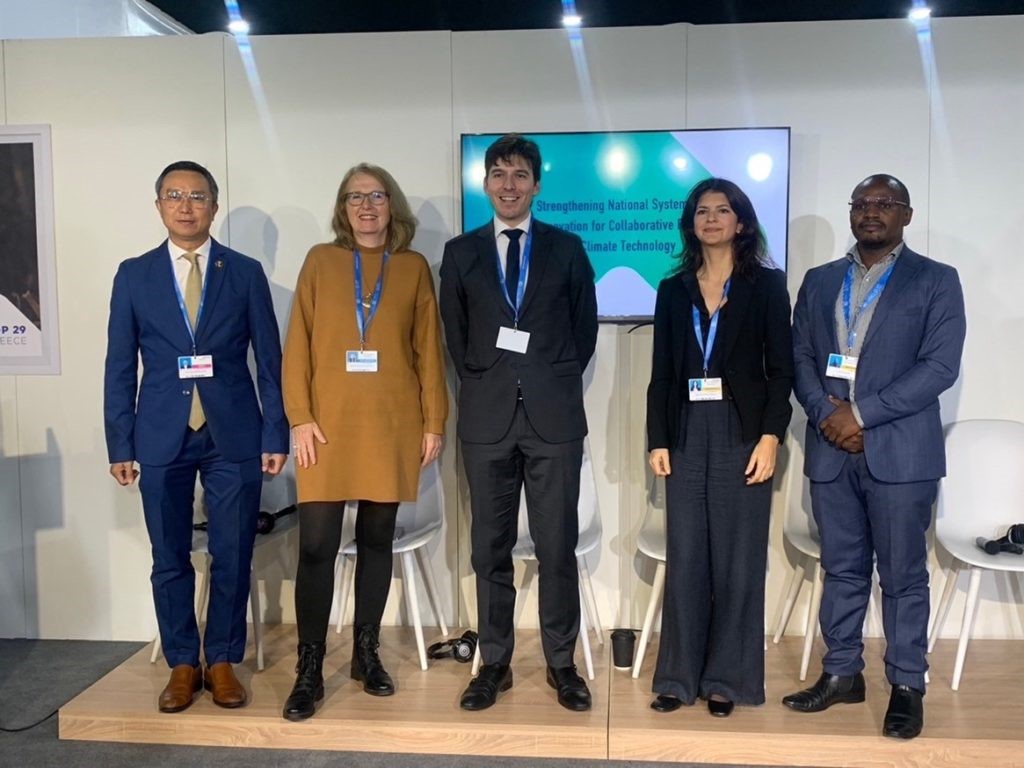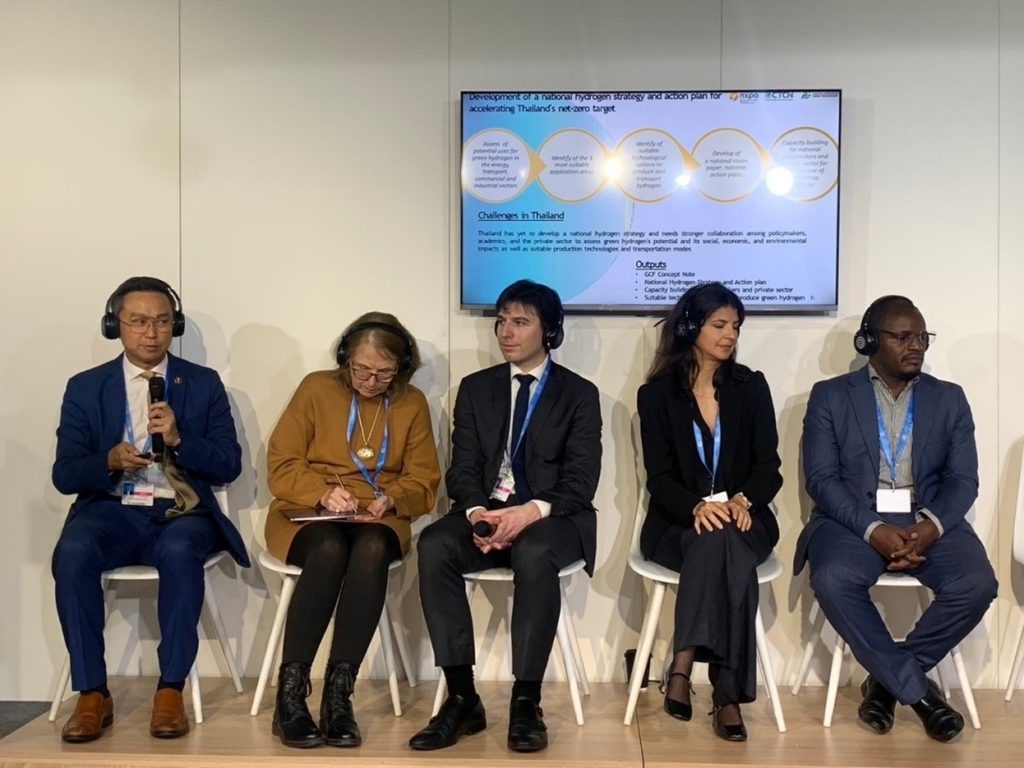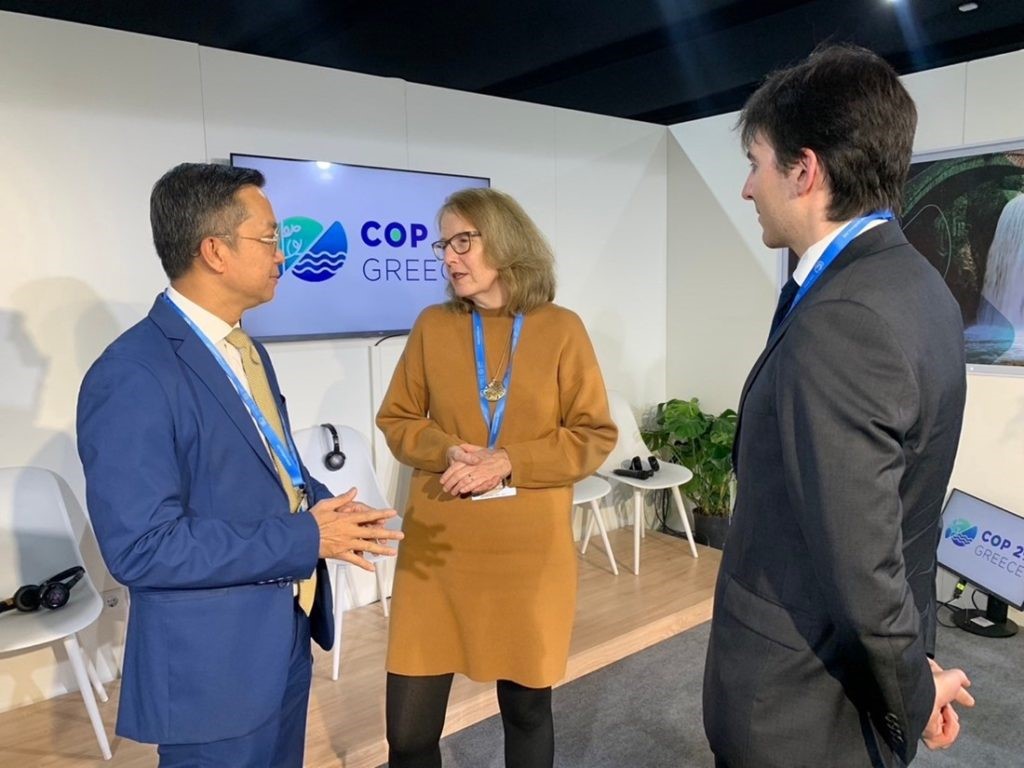NXPO President Dr. Surachai Sathitkunarat participated in a side event co-hosted by the United Nations Environment Programme (UNEP) and the Climate Technology Centre and Network (CTCN) at the 2024 United Nations Climate Change Conference (COP29) in Baku, Azerbaijan. Held under the theme “Strengthening National Systems of Innovation for Collaborative RD&D on Climate Technology,” the seminar took place on 20 November 2024 at the Greece Pavilion. The seminar highlighted the development and promotion of Thailand’s National System of Innovation (NSI) and efforts to advance research, development, and demonstration (RD&D). Program Management Units (PMU) under the Science, Research, and Innovation (SRI) system play a key role in translating strategies and policies into actions utilizing the SRI Fund. This approach ensures systemic operations across critical national priorities and the entire RD&D value chain – from upstream to midstream and downstream – maximizing the practical application of generated knowledge.

Thailand’s NSI model was showcased as a collaborative and policy-driven framework led by NXPO. As a key proponent of NSI, NXPO supports higher education, science, and innovation policies, working in close collaboration with internal and external networks of the Ministry of Higher Education, Science, Research, and Innovation (MHESI). Furthermore, as Thailand’s National Designated Entity (NDE) for the UNFCCC Technology Mechanism, NXPO is able to integrate NSI activities with global climate technology initiatives under the UNFCCC framework.
The presentation also included findings from the project “Development of National Hydrogen Strategy and Action Plan for Accelerating Thailand’s Net-Zero Target”, conducted by Korea’s National Institute of Green Technology (NIGT) with support from CTCN. The study provides essential inputs for policymaking and strategy development to foster international collaboration on climate technology development and transfer to advance Thailand’s national hydrogen strategy. In addition, the project has facilitated a collaboration between Thai researchers and the Korea Institute of Energy Research (KIER) on green hydrogen production.









